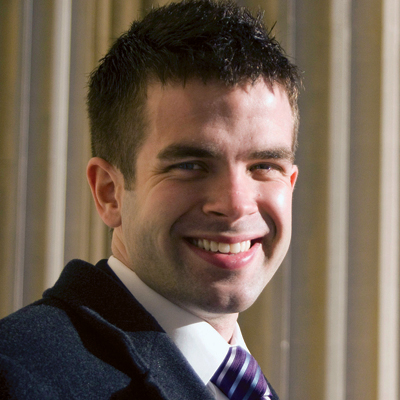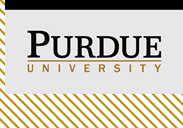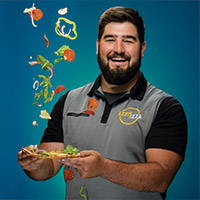
Brent Ardaugh (HSCI '08) spent almost two years investigating metal-on-metal hip implants. His article in The New England Journal of Medicine could help change how the implants reach the market. (Photo by Nicola Kean)
Brent Ardaugh learned early the power of the pen. By 12, he was writing letters to celebrities, politicians and athletes. Autographed responses from the likes of Al Pacino, Gerald Ford and Arnold Palmer made him think that he was onto something. It did prove to be solid training ground for his future as a science and medical writer.
When Ardaugh (HSCI '08) first came to Purdue, he dreamed of matriculating to medical school to become a plastic and reconstructive surgeon. A biology major who switched to health sciences, Ardaugh even shadowed a famous plastic surgeon in Beverly Hills who advised him to become an active member of the American Medical Writers Association.
The passions for writing and science converged at Purdue as he was particularly influenced by Laurie Iten, associate professor of biological sciences. "I still keep the communication book Professor Iten wrote on my desk today," Ardaugh says. "It's a real gem and I use it all the time."
Storytelling became a focus of his Purdue education. "Scientists often have the best stories to tell," says Ardaugh, then a frequent visitor to Purdue's renowned Online Writing Lab, where graduate students helped him craft his first news story. "But sometimes it's so difficult to understand, people lose interest. If we could fix that, we could have expert science being communicated to the lay public."
For Ardaugh, now a science writer for the Framingham Heart Study and an editor at Brigham and Women's Hospital in Boston, success has always been about passion and persistence.
"The science at Purdue was incredibly difficult," Ardaugh says. "I did not have a 4.0, but I did take the most difficult classes I could find. I was more concerned with the experience. The program gave me the flexibility to find out what I was most passionate about."
Training in epidemiology and science writing defined Ardaugh's path. After Purdue, he earned two master's degrees from the Boston University School of Public Health and the Columbia University Graduate School of Journalism.
He developed a bit of a niche for discovering the facts and telling the most complicated of stories. "I love working with documents," Ardaugh says. "The harder the story, the more detailed the documents, the more I love it. We have to be 100 percent accurate. When I take on a project, I know I'm going to have to spend a lot of time on it to produce something that is powerful and correct."
The scientific writing also allows Ardaugh to challenge the status quo. He spent almost two years investigating metal-on-metal hip implants. A week after the article came out in The New England Journal of Medicine, the U.S. Food and Drug Administration proposed to change the law on how metal-on-metal implants reach the market.
"It's the science writer's job to take all the guesswork out of an article, which makes for less effort on the reader's part," says Ardaugh, continuously in pursuit of the words to decode medical complexities. "I write with that principle in mind. To help people understand science."











